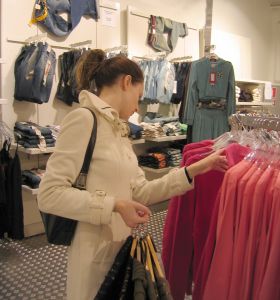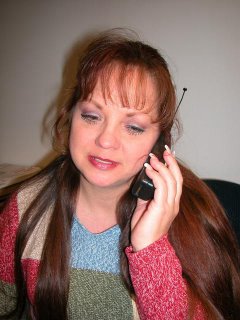
The bored men's shoe sales clerk showed little enthusiasm, and even less sales skills, as he checked through the customer's purchase. I swear, I saw him yawn twice as he checked through the purchase. As I watched the exchange, the buyer of the new dress shoes was asked mechanically, if he "needed anything else". As I expected, the response was the easily predicable "No".
What took place was the classic conditioned response, multiplied by an uninterested and poorly trained salesperson. When someone asks us a question where the response is an easy No, that's the answer we provide. Open ended questions lead overwhelmingly to negative responses. In fact, we have No as a default setting in our brains, for just those open ended queries.
Here is one such typical exchange in a retail setting:
"May I help you?"
"Just browsing, thanks."
In a food service business, the exchange might take this form:
"May I get you something else?"
No thanks, we're fine."
In the first example, instead of asking the shop worn (sorry) offer to help, a better suggestion might be to offer to show the new Spring line. Another option is to offer two choices when the customer displays interest. For example, a customer looking at shoes might be asked if they prefer to see the pair in black or in brown.

In the second example, the waitperson could offer to show the dessert tray, and point out the specials. Another option would be to recommend two different desserts, thus creating a positive choice situation. The use of open ended quetions helps the customer to reach a decision and solves their other needs. One purchase is often just part of their overall requirements. This holds true whether you are selling computers, a personal service, or professional business services.
Other possible sales presentations can be applied to the above examples as well. In any case, the avoidance of the yes or no response is paramount to the success of the sales person. Be honest. You would respond with your default No setting yourself. Don't let your business fall into that poorly trained sales staff trap.
Meanwhile, back at the shoe store, the saleperson missed an opportunity to offer extra shoelaces, shoe moisture protectant, or some shoe polish. If the clerk was receiving any form of commission on sales volumes, part of his pay stub walked (sorry) out of the door with the customer. Strangely enough, the shoe buyer might have bought any or all of those items. When a customer has made an initial purchase, subsequent smaller, but related buying actions are much easier to accomplish.
Getting the first dollar out of the customer's wallet is the hardest step. The next dollars are much more likely to follow. Once one purchase is made, repeat business on the spot is very likely. Long term customer relationships are also more likely as well, because their needs were met.

If you have any sort of selling as part of your job, you would do well to remove the closed ended questions from your sales presentation. Every job or business requires some sort of sales presentation, in all sorts of interpersonal situations. As a result, this advice is helpful to those of you who don't consider yourselves salespeople. You got your job or your clients by selling yourself as qualified to do the job, right? That's sales.
When training your sales staff, be sure to teach them to ask open ended questions that gain information. Most customers will gladly advise your staff of their purchasing needs and requirements. The prospects might not be entirely aware of all of your possible solutions to their immediate and long term problems. It's the job of you and your sales team to help solve those problems.
Open ended, information seeking questions will yield those positive customer buying responses. Asking closed ended questions, that practically beg for a No in response, should be avoided entirely.
Simply incorporating better questions into your sales close will gain you and your business more positive responses. More sales means greater revenue for your business. It also means a much more satisfied customer who appreciates the extra care in solving her problems. A satisfied customer is much more likely to be a repeat customer, and to refer other prospects to your business as well.
It's another win win situation for everyone involved.